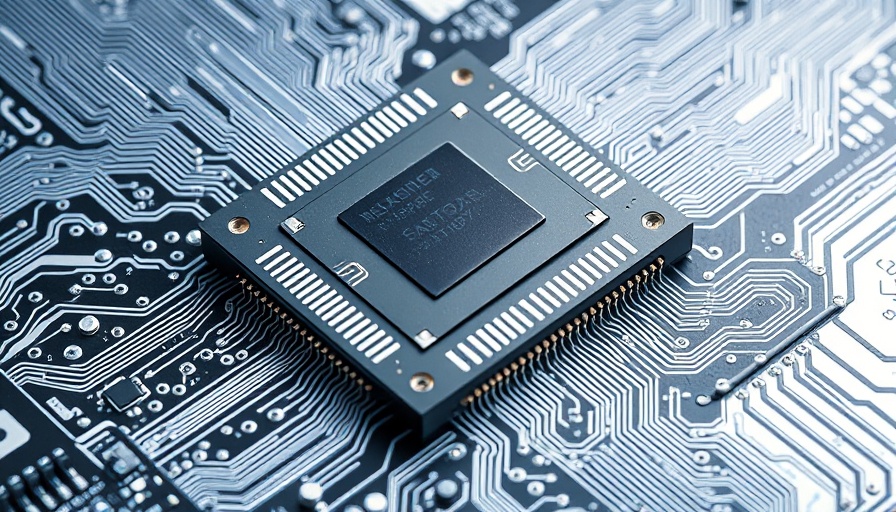
Speedata's Bold Move Against Established Giants
In an era where tech giants like Nvidia dominate the landscape of data processing, a daring newcomer, Speedata, has emerged from Tel Aviv with plans to shake up the status quo. Receiving $44 million in its Series B funding round, Speedata has now amassed a total of $114 million in capital to power its ambitious mission: to redefine how data analytics is performed.
Founded in 2019 by a team of innovative researchers specializing in Coarse-Grained Reconfigurable Architecture (CGRA) technology, Speedata aims to introduce an analytics processing unit (APU) uniquely designed for big data workloads and AI applications. Traditional processors and Graphics Processing Units (GPUs) often struggle with the increasing demands of complex data tasks. Speedata's APU, however, is designed from the ground up to address these challenges and promises significantly enhanced performance.
The Future of Data Analytics: A Game Changer
“For decades, data analytics have relied on standard processing units, with companies like Nvidia leading the charge in adapting GPUs for these tasks,” said Adi Gelvan, CEO of Speedata. “We believe that these solutions, while effective, are not optimized for data analytics. Our APU is tailored specifically for these tasks, promising to deliver results that can replace racks of conventional servers.”
By focusing on the specific bottlenecks in data processing at the computing level, Speedata's APU is positioned to not only compete with existing technologies but to set a new standard. The company's goal is clear: become the go-to processor for data analytics across all major databases and platforms.
Who Is Backing This Innovation?
Speedata's recent funding round was filled with big names. Existing investors such as Walden Catalyst Ventures and Koch Disruptive Technologies came together, alongside strategic partners like Lip-Bu Tan, CEO of Intel. This level of backing highlights the industry anticipation for what Speedata can achieve with its unique approach to data processing.
The infusion of capital has allowed Speedata to expand its workforce and accelerate product development. As data needs continue to grow, the urgency for more efficient processing solutions has never been higher.
Challenges Ahead: Competing with Industry Titans
Despite the excitement surrounding its APU, Speedata is fully aware of the challenges it will face. Competing against established giants like Nvidia and Intel, who have been in the industry for decades, is no small feat. Yet, Speedata's founders are optimistic, believing their dedicated solution will offer substantial benefits to customers needing efficient data processing.
The team is well-prepared, combining years of research and industry experience to navigate the competitive landscape. As they continue to refine their product roadmap, including support for platforms like Apache Spark, the industry will be watching closely.
Why This Matters: The Broader Implications for Tech Industry
The implications of Speedata's innovations go beyond just competition. As organizations increasingly turn to big data analytics, the need for specialized processing units becomes critical. By providing a solution born from a deep understanding of the intricacies of data workloads, Speedata could not only drive efficiencies for businesses but potentially redefine industry standards.
Moreover, as other startups look to carve their niches, Speedata's trajectory may serve as a case study on the importance of specialized tech solutions in a rapidly evolving market.
Conclusion: A Call for the Industry to Watch
With strong financial support and a clear vision, Speedata is on the verge of potentially altering the data processing landscape. If they succeed, they could inspire a new wave of startups that challenge the norms within the tech field. For anyone invested in technology and its future, keeping an eye on Speedata and its developments could prove beneficial. The startup scene is full of surprises, and Speedata might be leading the next big breakthrough.
Stay updated with the latest tech news on Speedata's journey, and consider how these advancements might affect the broader business landscape.
 Add Row
Add Row  Add
Add 



Write A Comment